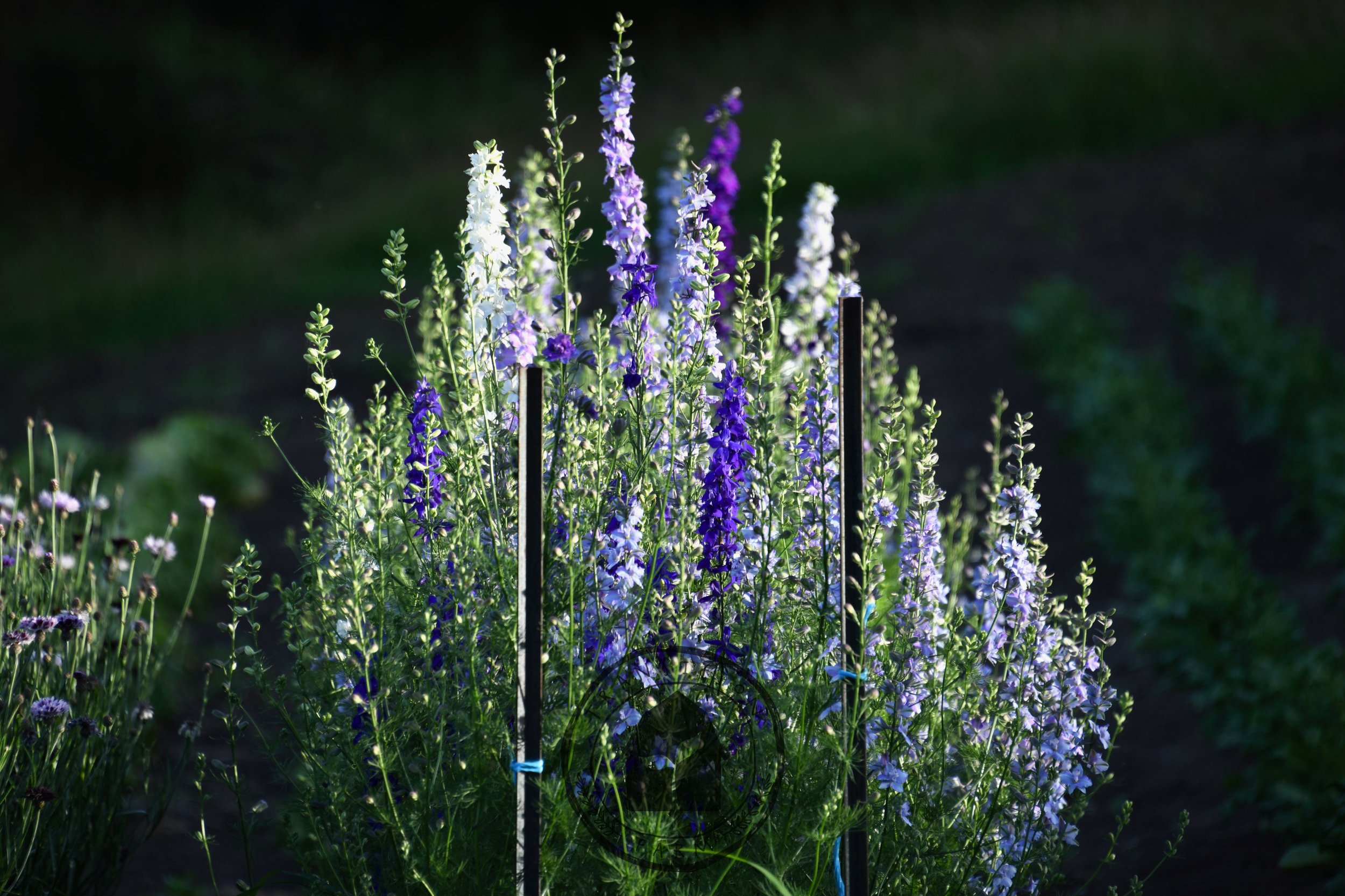Biodynamic Gardening Notes 7 - 13 March
/Brian Keats' notes on weather in the 2012 Astro Calendar are predicting extreme weather for almost every month. Keeping that in mind, anything that we can do to strengthen soil and plants will help them over come the stress of such a season. Many of the Biodynamic practices suggested for certain times limit the stress to plants by working with their natural rhythms. We have found that while it is not always possible to do everything on the farm or in the garden on the "correct" day, we do try and plan our tasks keeping the natural rhythm in mind to encourage and support plant and soil health. Garden activities for the coming weeks include planting spring bulbs, planting perennials including herbs, seeding lawn, seeding cover crops, making and spreading compost, harvesting apples, pears, pumpkins,capsicums, eggplants, and the last of the tomatoes (if the excessive rain has not already finished them off), and planting the autumn garden including beetroot, bok choy, broad beans, broccoli, cabbage, carrots, cauliflower, celery, coriander, dill, endive, fennel, leeks, lettuce, kale, parsley, parsnips, radish, spinach, spring onions, and turnips.
The moon continues ascending this week – The earth breathes out. We see this as growth activity above the soil. Growth forces and saps flow upwards more strongly and increase the plants vitality. This is the time to spray horn silica preparation 501, cultivate at the appropriate constellation before sowing, harvest on an air constellation plants for medicinal purposes, flowers and plants for preparation making and field crops such as silage and hay (Biodynamic Resource Manual, 51-53).
The full moon is on Thursday 8th of March. “In the 48 hours leading up to the Full Moon there is a distinct increase in the moisture content of the earth. The growth forces of the plants are enhanced. The Full Moon period is also connected with the growth of the plant and quick germination of seeds. Seed germination is prompt but may be soft and prone to fungal attack. The influence of the full moon appears to provide favourable conditions for the growth of fungus on plants. This is related to the increase of moisture and humidity.” (Biodynamic Resource Manual,51)
There is the Perigee of the moon (when the moon is closest to the earth) on Saturday, March 10 at 20:03. The Perigee brings greater moisture and a tendency towards fungal growth. Keep a close eye on those plants prone to blights and mildews. Casuarina tea, seaweed brew and witch’s brew give support to the plants and help them to overcome any fungus, mildews and/or rusts which may be starting.
Biodynamic Agriculture Australia suggests adding 508 - Equisetum/Casuarina teas in atmosphere and soil sprays. "This will build maximum resilience on your farm to buffer the effects of extreme weather. If there is a prolonged wet period, try doing a sequential spray in the air/fire signs." (News Leaf #90 - Biodynamic Agriculture Australia, 34)
After extreme weather, maria Thun suggests using fresh Equisetum tea - 10gm dries Equisetum in 10 litres water and simmered for 20 minutes sprayed on the plants and the soil in the evening. The next morning she suggests a spray of strongly diluted Stinging Nettle Feerment. Equisetum spray pushes the fungi back into the soil, stinging nettle stimulates renewed and healthy growth. (News Leaf #90 - Biodynamic Agriculture Australia, 34)
This week starts off with the moon in a fire sign. Warmth or fire signs are favourable for fruit plants. These include all plants whose seed fruit we harvest: beans, peas, grains, cucumbers, squashes, lentils, corn, capsicums, rice, soya, tomatoes, zucchini, eggplant, strawberries and fruit trees.
The moon moves into an earth sign on Friday morning starting at 06:34 until Sunday morning at 07:08. Earth signs are favourable for root plants. These included all plants whose roots we harvest: carrots, parsnips, radishes, beetroot, celeriac, swedes, potatoes, onions and garlic.
From Sunday until Tuesday at 08:22, the moon is in an air sign. Air signs are favourable for flower plants. These include all the plants, which are grown for their flowers, and where we want a long flowering time: garden flowers, medicinal and preparation flowers, bulbs and broccoli.
The moon is in a water sign onTuesday, although a planetary trine is ocuring in favour of an earth sign. Water signs are favourable for leaf plants. Earth signs, roots. During these trine periods, the effect of the moon is either intensified by the planets or decreased. In this case, the planets are not supporting the moon in a water sign.
Prepare for the descending, waning moon next week which is a great time do Autumn applications of 500. There is also a node on the morning of Wednesday the 14th.
-Gardening Notes are compiled using Brian Keats Antipodean Astro Calendar; Maria Thun’s Gardening for Life; Biodynamic Agriculture Australia’s Biodynamic Resource Manual; Peter Cundall’s The Practical Australian Gardener; Louise Riotte’s Astrological Gardening; and the experiences and farm practices on Transition Farm
Links for more information
For more information about our Biodynamic Gardening Notes, visit our previous post About our Biodynamic Notes.
For more information about liquid brews for plant health, visit our Seasonal Notes page and click the tag “liquid brews” .
For more information about Biodynamics and to purchase biodynamic preparations, I know of three organisations in Australia:
Demeter Biodynamics at http://www.demeter.org.au/index.htm
Biodynamic Agriculture Australia at http://www.biodynamics.net.au
Australia Biodynamic- Victoria Inc. at http://www.biodynamicsvictoria.org/
For more information about the Antipodean Astro Calendar, Biodynamic Planting and research and more visit Brian Keats’ website at http://astro-calendar.com/index.htm.













